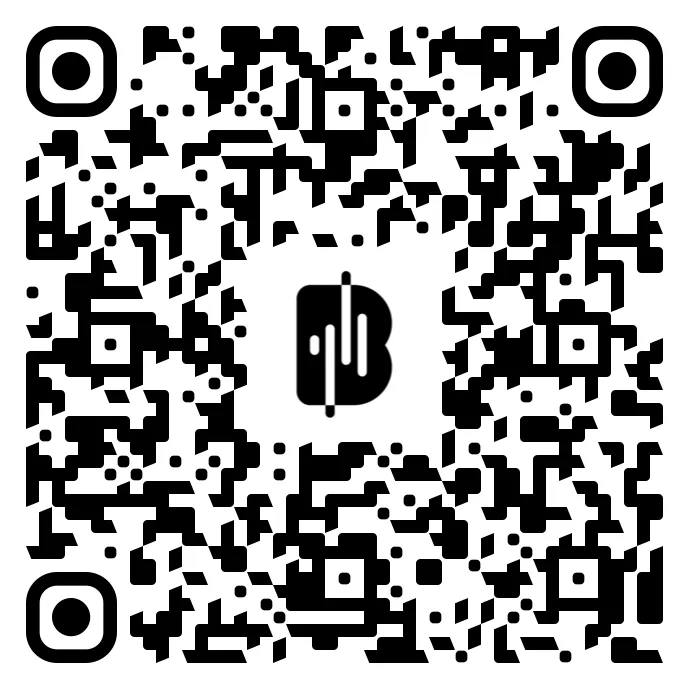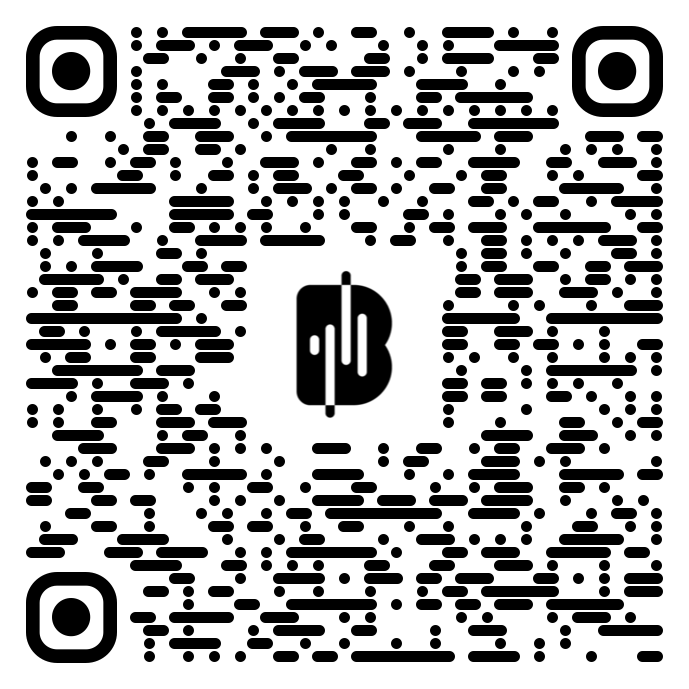As you advance in your career and interact with other professionals , you realize that clear English pronunciation is crucial for communication. Proper pronunciation enhances confidence, playing a pivotal role in shaping how people perceive you both socially and professionally.
The Korean language is beautiful, with an equally captivating history and cultural background. The language has a unique sentence structure, conjugation rules, and a script (Hangul), which is completely different from the English Latin script. It is therefore normal that there will be numerous difficult English words for Korean speakers who attempt to master the English language .
This article will explore speech barriers, highlighting the 25 most difficult English words for Korean speakers. You’ll also identify core challenges in pronouncing these words, learn how to overcome them, and ultimately pronounce the words like an American English speaker .
Let's get to it.
1. See /siː/ "See" simply means to perceive things with one’s eyes. We often pronounce this word with a long "EE" vowel sound. Korean, however, lacks the long "EE" and may therefore result in shortening the final sound, making it seem like "IH" is the primary vowel sound, rather than "EE."
To pronounce this word correctly, place the stress on and prolong the final syllable in the word "see." For that "EE" sound, remember to spread your lips, and close your jaw so your teeth are almost touching. The sides of your tongue will press on the sharp teeth on the sides of your mouth.
Review the mechanics of this sound in the video below.
VIDEO
2. Shine /ʃaɪn/ The combination of "SH" and "ai" can be tricky, especially in words like shine. This word means to emit light or reflect light brightly. However, Korean speakers may pronounce it as "sign," altering its true meaning. This is because the "S" and "SH" sounds are represented by the same letter in the Korean language. For example:
“사”- (sa)
"시" (shi)
"샤" (sha)
To achieve the crucial "SH" sound, curl the sides of your tongue up to your top back teeth. Position the tip of your tongue behind your top front teeth. Round your lips a little. Exhale and let air pass between your tongue and teeth to create a "shh" sound.
VIDEO
Perfect your English pronunciation Master challenging English sounds and get 7 days of lessons for free on the BoldVoice app.
Start Free Trial
3. Four /fɔːr/ Pronouncing the simple number "four" may be difficult for Korean speakers because they lack the "R" sound in their native language. It is therefore common for them to pronounce "four" as "fall" instead.
We pronounce the "R" sound in "four" by raising the front of the tongue towards the gum ridge behind the upper front teeth, with the lips relaxed. This allows the vocal cords to vibrate without rolling or tapping the "R." Also, focus on keeping the sound short and not overemphasizing it.
4. Vet /vɛt/
Many Korean speakers pronounce "vet" as "bet," making it one of the most difficult English words for Korean speakers. This is because the Korean language doesn't have a distinct "V" sound . Koreans therefore represent it with the closest sound—the “B” sound. A "vet" is an animal doctor and it is the abbreviation of the word "veterinarian."
Pronouncing the "V’’ sound in "vet" entails placing your bottom lip under your top teeth and opening your mouth slightly. The sound forms when you force air out while vibrating your vocal cords.
5. Present /ˈprez.ənt/
The word "present" as a noun represents something given to someone else as a gift. In pronouncing this word, the stress falls on the first syllable, as in PREsent.
However, when Koreans try to pronounce it, they might naturally place the primary stress on the second syllable, following their native language's stress pattern. To overcome this challenge, focus on maintaining the stress on the first syllable.
6. Lab /læb/
Koreans may struggle with a word when it ends with voiced consonants like "B," "D," or "G." They would rather convert the sounds into unvoiced "P," "T," and "K" respectively or make them disappear altogether. The closest equivalent to the "B" sound in "lab" for Koreans is a mix between "B" and "P." Therefore, they sometimes pronounce the word "lap," altering its true meaning in the process.
A "lab" is typically a room or building equipped for scientific research or experimentation. To pronounce the "B" here, bring your vocal cords together and create a buildup of pressure by closing your lips. Next, release the closure while keeping your vocal cords together.
VIDEO
7. School /skuːl/ This word represents an institution for education. This blend of sounds requires careful coordination of the consonant clusters to avoid breaking them.
Korean speakers sometimes separate the word into "seu-kul" because Korean words lack consonant clusters at the beginning or end of words. It is their pattern to form syllables by combining a consonant with a vowel or just vowels alone.
For this consonant cluster, practice articulating the "S" and "K" sounds uniquely, then focus on transiting both sounds smoothly.
8. Pronunciation /prənˌʌnsiˈeɪʃən/ "Pronunciation" describes the way a word is pronounced or voiced. This word may be one of the most difficult English words for Korean speakers because of its stress pattern. Korean English speakers have a typical stress pattern where stress tends to be more evenly distributed across syllables.
In English, the primary stress falls on the second syllable, as in "pro-NUN-ci-a-tion." Koreans might incorrectly stress the first syllable, making it sound like "PRO-nun-ci-a-tion."
9. Second /sɛkənd/ The word "second" represents a unit of time. Korean speakers might have a challenge with the "EH" sound in first syllable and pronounce the word as "sik-ond."
For the "EH" sound, open your mouth, position your tongue lower, and produce a short "EH" without rounding your lips.
For "K," position the back of your tongue against the soft palate, create a closure, and then release the airflow suddenly.
VIDEO
10. Pat /pæt/ "Pat" means to strike gently with the hand. The short "AA" vowel in this word can be difficult to pronounce for Koreans. As a result, we sometimes hear Koreans mispronounce the word as "pet."
To pronounce "AA," open your mouth moderately, position your tongue low and towards the front, and produce a short, relaxed sound.
VIDEO
11. Sheep /ʃiːp/
This word is easily one of the hardest English words for Korean speakers and other non-native speakers of English to pronounce. A sheep is a domesticated mammal with a thick woolly coat.
Korean lacks the long "EE" vowel sound in this word and would often substitute it with "IH." They may therefore pronounce this word as "ship" instead. To achieve the ideal sound, position your tongue high at the back of your mouth and produce a sustained "EE" sound.
VIDEO
12. Cat /kæt/
A cat is a small, domesticated carnivorous mammal with soft fur. This word is one of the most difficult English words for Korean speakers because Korean lacks the "AA" sound, leading to mispronunciations like "ket."
Practice the "AA" sound as in "pat" described earlier to properly pronounce the word "cat."
13. There /ðɛr/ Korean lacks the voiced sound "TH," present in "this," "there," and many other "Th" words. This often results in a pronunciation that sounds more like "dare." It is also common to mispronounce "this” as “dis" and "these” as "deez."
To correctly pronounce the voiced "TH" sound , place the tip of your tongue against or just behind your upper front teeth, allow a continuous voiced airflow, and produce the sound with a vibration of the vocal cords.
14. Doesn’t /dʌznt/ In English, "doesn’t" is a contraction of "does not," and it involves significantly voicing the “Z” sound. The Korean language does not have a distinct "Z" sound. As a result, when Koreans pronounce English words containing the "Z" sound, they may substitute it with a sound closer to "J" or "CH." Therefore, it may be incorrectly pronounced "doe-chn’t."
To pronounce the "Z" sound correctly, place the tip of your tongue lightly against the back of your front teeth, with your top and bottom teeth touching. Exhale to produce a buzzing sound.
VIDEO
15. Peas /piːz/
Like in the word "sheep," the long "EE" sound is present in "peas." The "Z" sound, as in the word "doesn't" also comes into play in this word.
Peas are round green seeds of a leguminous plant. Owing to the fusion of sounds in "peas," Koreans might instead pronounce it as "piss," neglecting the "EE" and "Z" sounds as well as changing the entire meaning of the word.
16. Vote /voʊt/ The "V" sound in "vote" is easily one of the trickiest for Korean speakers of the English language to pronounce. The English "V" is pronounced with the upper front teeth against the lower lip, creating a voiced sound, meaning you'll feel a buzz in your throat when you make it. However, Korean speakers may substitute the "V" with a sound closer to the Korean "B" or "P" sounds.
So, the word "vote" might be pronounced more like "bote" or "pote" in Korean English pronunciation. Check out the "V" sound as described earlier for "vet" to pronounce "vote" correctly.
17. Fine /faɪn/ When something is of good quality or satisfactory, we say it is "fine." However, there can be a tendency to substitute the "F" with the "P" sound amongst Korean speakers because the "F" sound is non-existent in Korean. The common mispronunciation of the word "fine" for Korean speakers is the word "pine."
For the "F" sound, place your upper front teeth on your lower lip, create a narrow gap for airflow, and exhale without engaging your vocal cords.
VIDEO
18. Bag /bæg/ A bag is simply a container made of fabric or paper. This word also contains the notorious "AA" sound, making it one of the most difficult English words for Korean speakers.
In addition, Koreans tend to add vowels to words that end with consonant sounds like "G." It is therefore not surprising that "bag" can often be mispronounced as "baguh." To fix this mistake, pay specific attention to final consonant sounds in English words.
Practice saying words with final consonants without adding extra vowel sounds.
19. Three /θriː/ Like the voiced "TH" sound, the unvoiced "th" sound is one of the hardest English words to pronounce for Korean speakers. This is because these sounds are absent in native Korean. The English word for the number "three," however, begins with the "th" sound. Korean speakers will therefore often pronounce the word "tree" instead of “three.”
To accurately pronounce the "th" in "three," place your tongue between your front teeth and release air to create a hissing sound.
20. Zoo /zuː/ A zoo is a place where wild animals are kept for exhibition. Again, the "Z" sound, which is dominant in this word, is difficult for many Korean speakers. Therefore, they may pronounce the word "zoo" as "joo" or "choo."
Mastering the "z" sound as explained earlier will help you pronounce this word. And don't forget to elongate the final long "OO" sound to achieve accurate pronunciation for "zoo."
21. Rarely /ˈrer.li/ When something doesn't happen too often or frequently, it is rare. In Korea, it is a simple word spelled as 드물다 (deumulda). However, it is one of the hardest words for Koreans to say in English because of the middle "R" sound . The most common mispronunciations for this word are "ra-lee" and "ra-li."
To pronounce the word "rarely," practice pronouncing each letter slowly before bringing them together to form the complete word. Focusing on including that middle "R" will help Korean speakers to avoid omitting it and instead pronounce the word as an American English speaker would.
Take your free accent assessment Get to know your pronunciation level and get 7 days of lessons for free on the BoldVoice app.
Start Free Trial
22. Rabbit /ræbɪt/
This word makes our list of difficult English words for Korean speakers because of the initial "R" sound. In Korean, the phoneme represented by "R" is a sound that shares characteristics with both the English "R" and "L" sounds. Therefore, it is easy to mix up English words like "rabbit" and make them sound like "labbit."
To pronounce the American "R" sound, lightly tap the tip of your tongue against the alveolar ridge without rolling it. Next, engage your vocal cords and produce a quick sound. Ensure that your tongue does not touch the roof of your mouth.
VIDEO
23. Wood /wʊd/ Wood is the hard, fibrous material that makes up the trunk and branches of a tree. The initial "W" sound can be challenging for Korean speakers, as it isn’t common for them to start words with the "W" sound. The closest sound alternative to this sound is "OO," hence you might hear wood being pronounced as "oo-d."
For the "W" sound, round your lips, leaving only a narrow gap. Deeply engage your vocal cords and release air gently through the rounded gap.
VIDEO
24. Seat /siːt/
As in the word "see," many Koreans shorten the long "EE" sound in the word "seat." Instead of "seat," they tend to say "sit," and both words have distinct meanings.
A "seat" is a designated place for a person to sit, typically a chair or bench. The key to pronouncing this word fluently is prolonging the "EE" sound between the "S" and "T" sounds.
Practice with minimal pairs like "seat" and "sit" to really master the difference between these two vowels.
25. Paint /peɪnt/
In the word "paint," the "EY" diphthong is the main cause of mispronunciation, so Koreans tend to interchange it with the "EH" sound. This invariably means they are likely to pronounce the word paint as "pent." Paint is a colored liquid or powder used to cover a surface.
To articulate this word, you must learn to pronounce the "EY" diphthong . Say the "E" sound and swiftly transition to the "IH" sound without breaking the flow.
VIDEO
Overcoming Difficult English Words for Korean Speakers Mastering sound challenges and articulating English pronunciation is a gateway to improved confidence and clearer communication. The difficult English words for Korean speakers addressed here are only a few out of numerous. We are beyond excited to help you learn more difficult words as you progress in your accent training.
To master correct pronunciation, engage in targeted exercises like tongue twisters that focus on challenging sounds. Regular practice, listening to native speakers, and using the best English pronunciation apps can also significantly boost your accent.
BoldVoice offers tailored exercises and feedback, making the learning process interactive and effective. With real-life lessons from Hollywood speech coaches and instant evaluation from AI technology, you’re sure to improve quickly.
Start boosting your American pronunciation skills and grow your confidence today with a seven-day free trial on the BoldVoice app !









